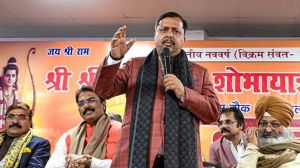A way in the world
In my fantasy of being a writer there had been no idea how I might actually go about writing a book. I suppose I couldn't be sure that the...

In my fantasy of being a writer there had been no idea how I might actually go about writing a book. I suppose I couldn8217;t be sure that there was a vague notion in the fantasy that once I had done the first the others would follow.
I found it wasn8217;t like that. The material didn8217;t permit it. In those early days every new book meant facing the old blankness again and going, back to the beginning. The later books came like the first, driven only by the wish to do a book, with an intuitive or innocent or desperate grasping at ideas and material without fully understanding where they might lead. Knowledge came with the writing.
Each book took me to deeper understanding and deeper feeling, and that led to a different way of writing. Every book was a stage in a process of finding out; it couldn8217;t be repeated. My material my past, separated from me by place as well was fixed and, like childhood itself, complete; it couldn8217;t be added to. This way of writing consumed it. Within five years I had come to an end. My writing imagination was like a chalk-scrawled blackboard, wiped clean in stages, and at the end blank again, tabula rasa.
FICTION had taken me as far as it could go. There were certain things it couldn8217;t deal with. It couldn8217;t deal with my years in England; there was no social depth to the experience; it seemed more a matter for autobiography. And it couldn8217;t deal with my growing knowledge of the wider world. Fiction, by its nature, functioning best within certain fixed social boundaries, seemed to be pushing me back to worlds like the island world, or the world of my childhood smaller than the one I inhabited. Fiction, which had once liberated me and enlightened me, now seemed to be pushing me toward being simpler than I really was. For some years three, perhaps four I didn8217;t know how to move; I was quite lost.
Nearly all my adult life had been spent in countries where I was a stranger. I couldn8217;t as a writer go beyond that experience. To be true to that experience I had to write about people in that kind of position. I found ways of doing so; but I never ceased to feel it as a constraint. If I had had to depend only on the novel I would probably have soon found myself without the means of going on, though I had trained myself in prose narrative and was full of curiosity about the world and people.
But there were other forms that met my need. Accident had fairly early on brought me a commission to travel in the former slave colonies of the Caribbean and the old Spanish Main. I had accepted for the sake of the travel; I hadn8217;t thought much about the form. I had an idea that the travel book was a glamorous interlude in the life of a serious writer. But the writers I had had in mind and there could have been no others were metropolitan people, Huxley, Lawrence, Waugh. I was not like them. They wrote at a time of empire; whatever their character at home, they inevitably in their travel became semi-imperial, using the accidents of travel to define their metropolitan personalities against a foreign background.
My travel was not like that. I was a colonial traveling in New World plantation colonies which were like the one I had grown up in. To look, as a visitor, at other semiderelict communities in despoiled land, in the great romantic setting of the New World, was to see, as from a distance, what one8217;s own community might have looked like. It was to be taken out of oneself and one8217;s immediate circumstances the material of fiction and to have a new vision of what one had been born into, and to have an intimidation of a sequence of historical events going far back.
I had trouble with the form. I didn8217;t know how to travel for a book. I traveled as though I was on holiday, and then floundered, looking for the narrative. I had trouble with the 8220;I8221; of the travel writer; I thought that as traveler and narrator he was in unchallenged command and had to make big judgments. For all its faults, the book, like the fiction books that had gone before, was for me an extension of knowledge and feeling. It wouldn8217;t have been possible for me to unlearn what I had learned. Fiction, the exploration of one8217;s immediate circumstances, had taken me a lot of the way. Travel had taken me further.
Excerpted from Reading amp; Writing A Personal Account8217;, by V.S. Naipaul; New York Review Books; Acirc;pound; 6.50
- 01
- 02
- 03
- 04
- 05































